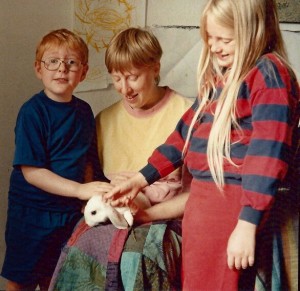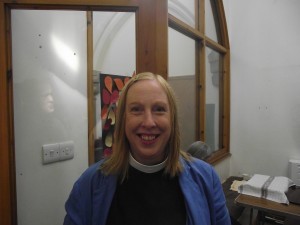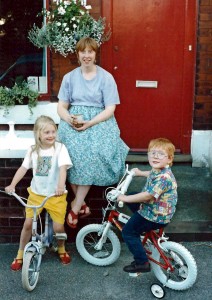
I set out to explain a lot in this blog, I wanted to divine and define precisely what I have been feeling in the past few days, since it was announced that the new Bishop of Burnley is to be ordained by only males who have never ordained a woman. Burnley is my home town, and it’s Bishop has responsibility for the Church where my mum is priest.
I have been working for nearly 12 hours now and have made little progress with my divining and defining. All I can offer you are the four disjointed sections of text below, which express some aspects of how I feel relatively clearly.
Table of Contents
Why “Church” is difficult for the daughter of a Woman Priest.
It’s hard for me, as a vicar’s daughter, to be a Church-going Christian because I have seen so many of the human frailties which go behind the scenes the C. of E. It’s also hard to describe the things I witnessed there: so many complex, profound and personal things which are interwoven with my life from my earliest memories onward.

I struggle constantly to reconcile my own calling to be a part of the Church with the damage I have seen that same Church do to my Mum over the years.
Yet, my Mum’s life as a Priest has shaped so much of who I am as a person: I am so grateful for her example and have enormous respect for her work.
So I find myself, each day, trying to follow the teachings of Christ and each week following her lead… going to Church… struggling to reconcile my own calling with the problems of the past. It’s a dizzying, maddening journey: the few islands of relief come in the form of the good friends I have made along the way.
The Trauma of The Call

The thing about priesthood that seems so often to be forgotten is that it is not a job: it is a calling. Reserved, awkward Brits don’t like to talk about profound personal experiences and, excluding the relatively brief process of selection and training, I have never heard a priest talk about the experience. Perhaps this is why we forget.
For women of my Mum’s generation, experiencing the call to priesthood must have been pretty much traumatic: to feel their God, powerful and trusted, pulling them from whatever path they were naturally on… into what? To do what? To be what?
Before being called, my Mum was heading to the Royal Northern College of Music – a “world-class conservatoire located in the heart of Manchester” – with a violin and some semi-prodigious musical talent. Fifteen years passed before she was given the go ahead by Mankind to do what God had asked of her many years before. I was 10 when she was ordained, so those restless, frustrated “in-between years” made up most of my childhood.
It’s hard to explain what it was like to see all that though the eyes of a child. It’s like her real life started, one day, 15 years late. And yet she didn’t change at all: it was as though she had always been a priest and no one knew that truth except for me. Her ordination, so contentious and hard-won, was almost arbitrary in my eyes.
She just was: wonderful, complicated Mum-priest. That was how God had made her, so how could some bunch of people refuse to see that truth for so long?
How do they still refuse to, after all this time?
The Anarchism of Vulnerability
People often see priests as powerful, but in the Anglican church at least, clergy are mostly vulnerable. I don’t mean the general mockery of religious folk and occasional violent attacks sort of vulnerable: this vulnerability is something more complex.
To openly choose a “low paid job” when you have the all the skills to be conventionally successful goes against the grain, especially in the era of Thatcher and Blair. My whole education was geared towards achievement and competition: if I succeeded then power, money and more possessions would be my reward. Yet my Mum was a servant by choice: she gave up money, power and success willingly.
More complex still, she chose to serve the people who a great deal of society would have us despise: the so-called “underclass” of Blackburn, the media-branded antitheses of success, who even the “leftist” BBC likes to abuse for sport. These people became her flock, and she has continued to put their well-being before her own, even while the rest of society (wrongly) labels some of them scroungers and degenerates. She has cared for them for many years, while the wider Church has been wrangling with the idea of Women Bishop etc.
Scary Politics, Scary Theology
That the church is playing any kind of ball with the so-called “Theology of Taint” scares me terribly.
It’s nearly 1 am now, and I still have not decided what I will do tomorrow in response to the Bishop of Burnley situation. Many are not attending church at all, but I suppose most will just keep quiet and hope the storm will pass.
The next day, I went to Church as normal, and prayed as normal. My good friend said to me after the service: “You can only change the church from within”.
